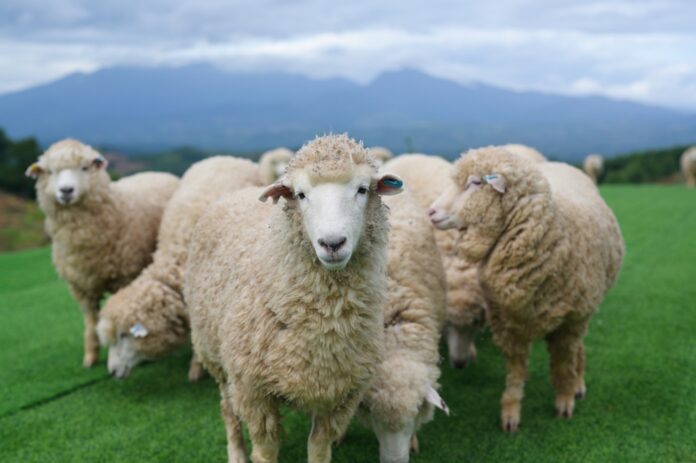Halal Slaughter: A Closer Look
A heated debate has emerged in Britain, where some voices demand a ban on halal slaughter. In response, experts in meat science and the halal industry explain what halal truly means, address claims of barbarism, and underscore the emphasis Islam places on animal welfare.
The practice of killing animals for food—whether under halal guidelines or not—is bound to evoke strong opinions. While some oppose any form of animal slaughter, others stress the nutritional importance of animal protein for growth and overall health. Regardless of the method, the process is inherently distressing for the animal and remains a sensitive topic.
For Muslims, strict requirements govern the way animals are slaughtered. Animals must not be killed for entertainment but only for valid reasons such as nourishment, the prevention of disease, or protection of human life. Halal slaughter follows a divine command and incorporates specific protocols to uphold animal welfare as well as the safety of those involved in the process.

Understanding Halal
The term “halal” is Arabic for “permissible” and applies to anything allowed under Islamic law. For meat to qualify as halal, the animal must belong to an approved species, and a brief prayer must be recited by a Muslim or a person of the book before the animal’s throat is cut. It is essential that the knife used is extremely sharp in order to minimize the animal’s suffering.
The animal must be handled gently and be properly secured so that the slaughter is carried out with precision by experienced professionals. The neck cut is performed swiftly to help reduce stress by allowing the animal to glimpse the tools used only if it aids in minimizing their distress.
Not all animals are permitted in a halal diet; for instance, pork is absolutely forbidden even if the slaughter is performed by a Muslim. Moreover, adherence to halal practices requires that the animal be alive at the time of the slaughter, that all the blood be drained from its body, and that it comes from an environment where it was well cared for.
Stunning in Halal Slaughter
For most of human history, animals—whether destined for halal or conventional slaughter—were killed without being stunned. In more recent centuries, various stunning methods have emerged and become regulated in several countries. While some regions offer exemptions for Muslims and Jews to perform slaughter without stunning, others have placed an outright ban on the practice.
The contentious debate often centers on whether halal slaughter can incorporate stunning. The answer is affirmative, but only if the stunning method is non-lethal. Research has identified “head-only electrical stunning” as a technique that renders the animal unconscious while still preserving life until the blood loss occurs, thereby satisfying halal requirements.
As a result, many halal facilities employ this method—especially for sheep and goats—to lessen the discomfort associated with the neck cut while remaining compliant with halal standards. It is crucial to distinguish this approach from others like mechanical or gas stunning, which may result in premature death and thus do not align with halal practices. For example, in the United Kingdom, lambs are often subjected to non-lethal stunning, whereas Jewish shechita is carried out without any stunning at all.
Currently, about 80% of halal slaughter operations use some form of non-lethal stunning, while roughly 20% forgo stunning entirely. Despite the scientific and regulatory backing of these methods, certain groups continue to label halal practices as “barbaric,” calling for their prohibition.
Animal Welfare in Halal Practices
Animal welfare is a priority in Islamic teachings. The Prophet Muhammad emphasized the importance of humane treatment, instructing that all acts of killing be performed with excellence. Traditional sayings recount that if one must kill, it should be done well; if one must slaughter, it should be executed with care—ensuring that the knife is sharp and the animal suffers as little as possible.
This focus on compassionate treatment is not isolated to a single teaching but is reinforced across various religious texts. It is the responsibility of Muslims to ensure that animals experience no unnecessary hardship from the moment of their birth until the time of slaughter.
The Economic Impact of Halal Meat
Halal meat plays a significant role in economies with substantial Muslim populations. In the United Kingdom, for example, although Muslims represent a small percentage of the overall population, they consume a large portion of lamb and mutton. This high demand supports local farmers and contributes positively to the national meat industry.
Additionally, halal chicken production accounts for a notable share of the market. With a growing Muslim presence not only in the UK but also across Europe, the Americas, the Middle East, Asia, and Africa, halal meat consumption continues to rise. As a consequence, any restrictions or bans on halal slaughter could have far-reaching economic repercussions, affecting both consumers and the agricultural sector at large.
In summary, halal slaughter is governed by a set of religious principles that prioritize minimizing animal suffering while ensuring that meat is prepared in a manner consistent with Islamic law. With careful adherence to these practices, halal slaughter methods can coexist with modern regulations, ensuring both humane treatment of animals and the continued support of an important economic segment.

Embracing Faith, One Insight at a Time!
The teachings of the Quran have always guided my path. With a deep passion for Islamic knowledge, I strive to blend the wisdom of tradition with the relevance of today, making the timeless messages of Islam accessible and meaningful for everyone.
Muslim Culture Hub is my platform to share historical insights and thought-provoking articles, exploring both well-known and lesser-discussed aspects of Islamic culture and beliefs. My mission is to create an inclusive online space where everyone can learn, strengthen their faith, and connect with the profound message of Islam.
Join the journey!
May peace be upon you.







